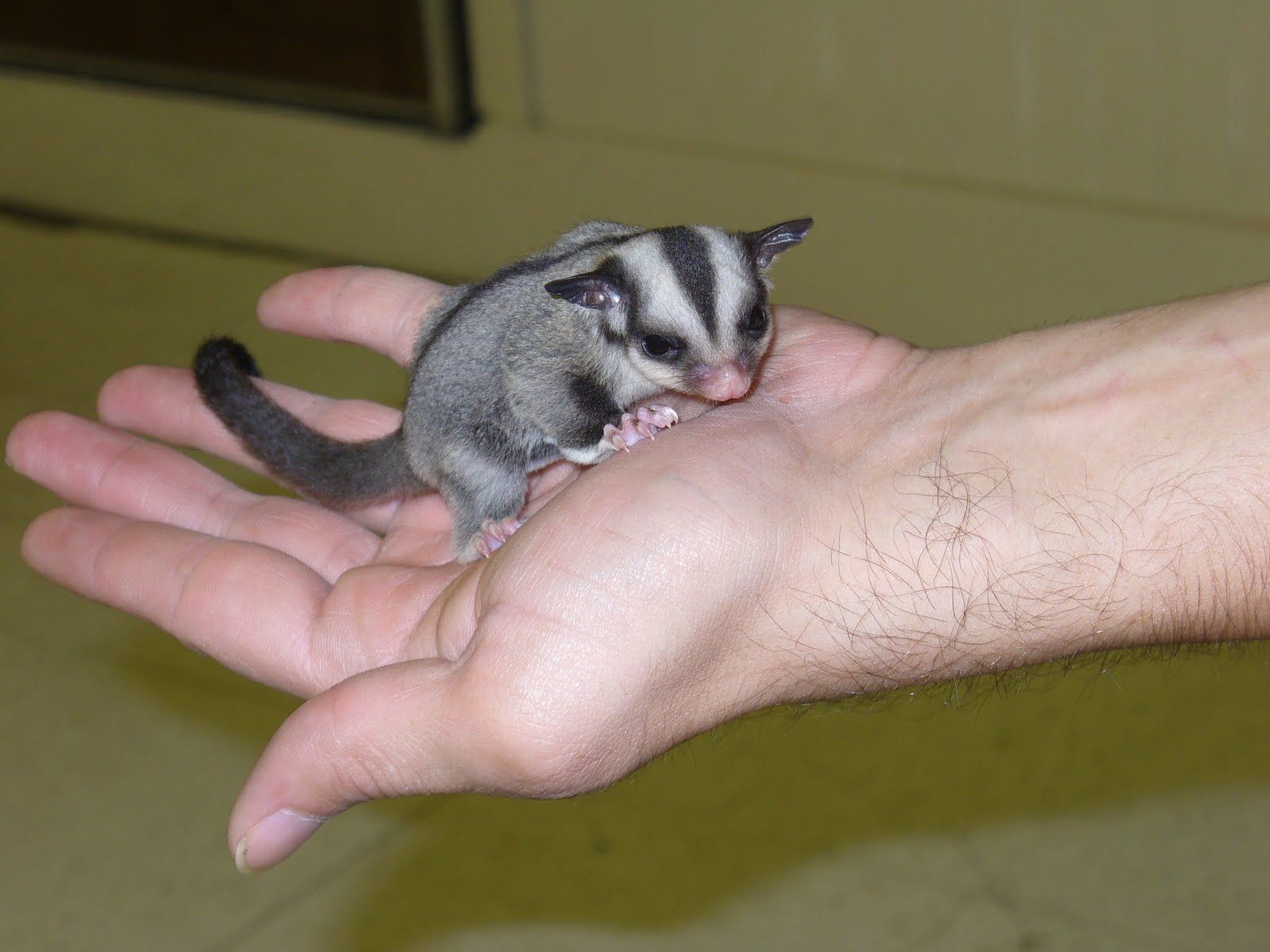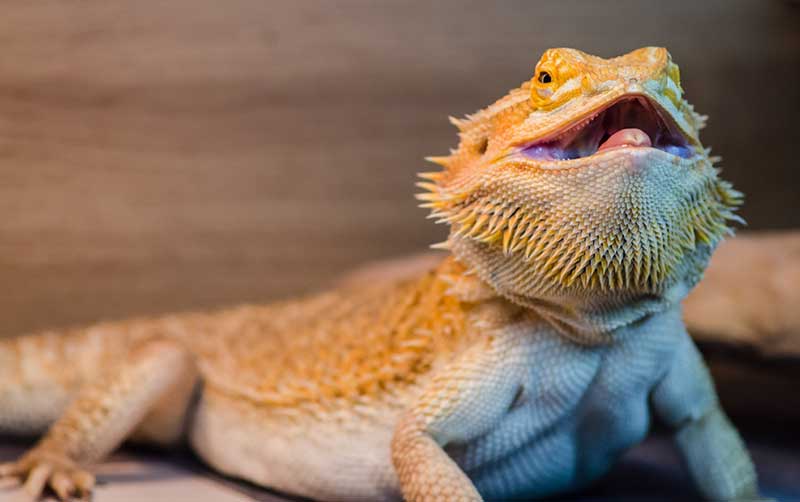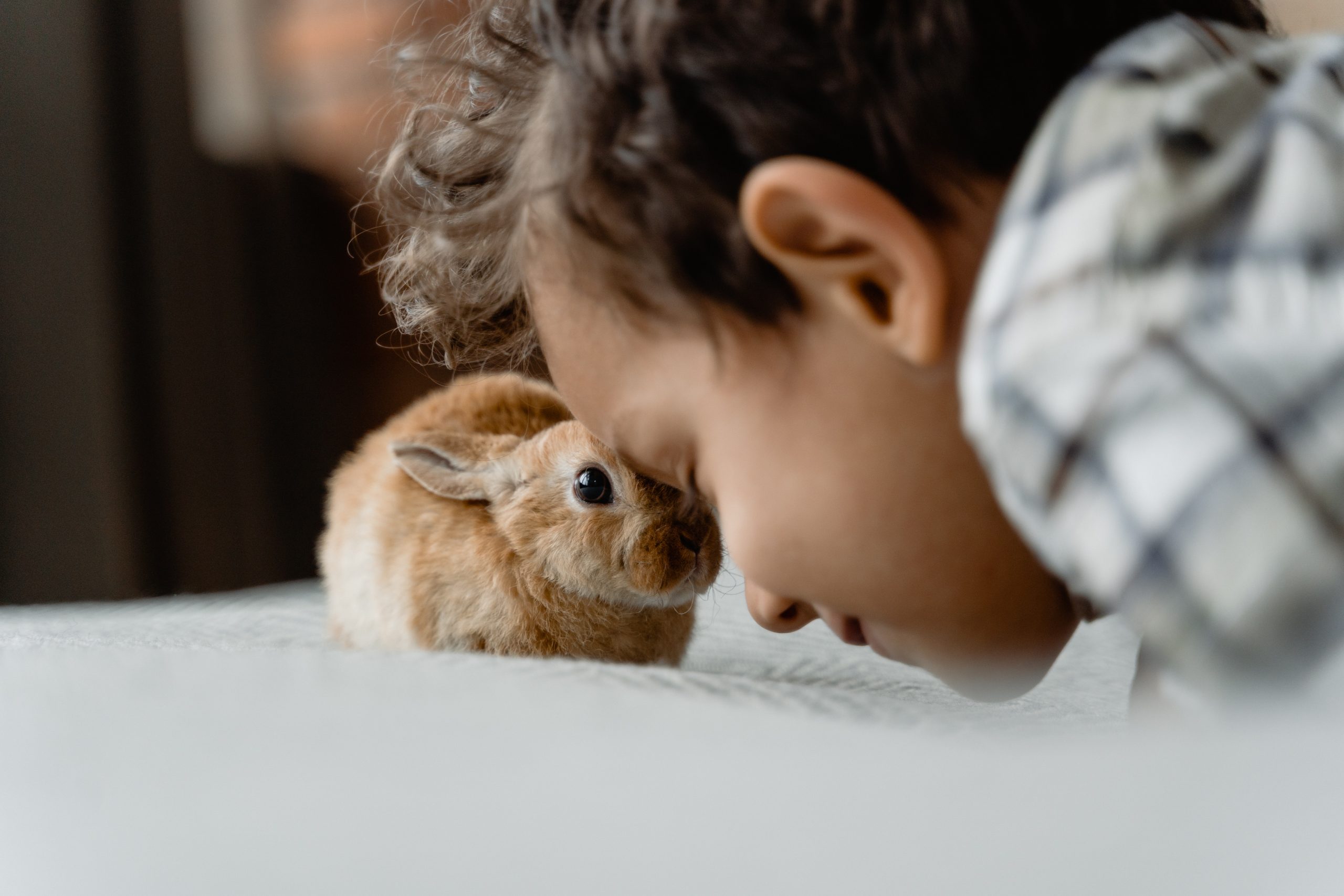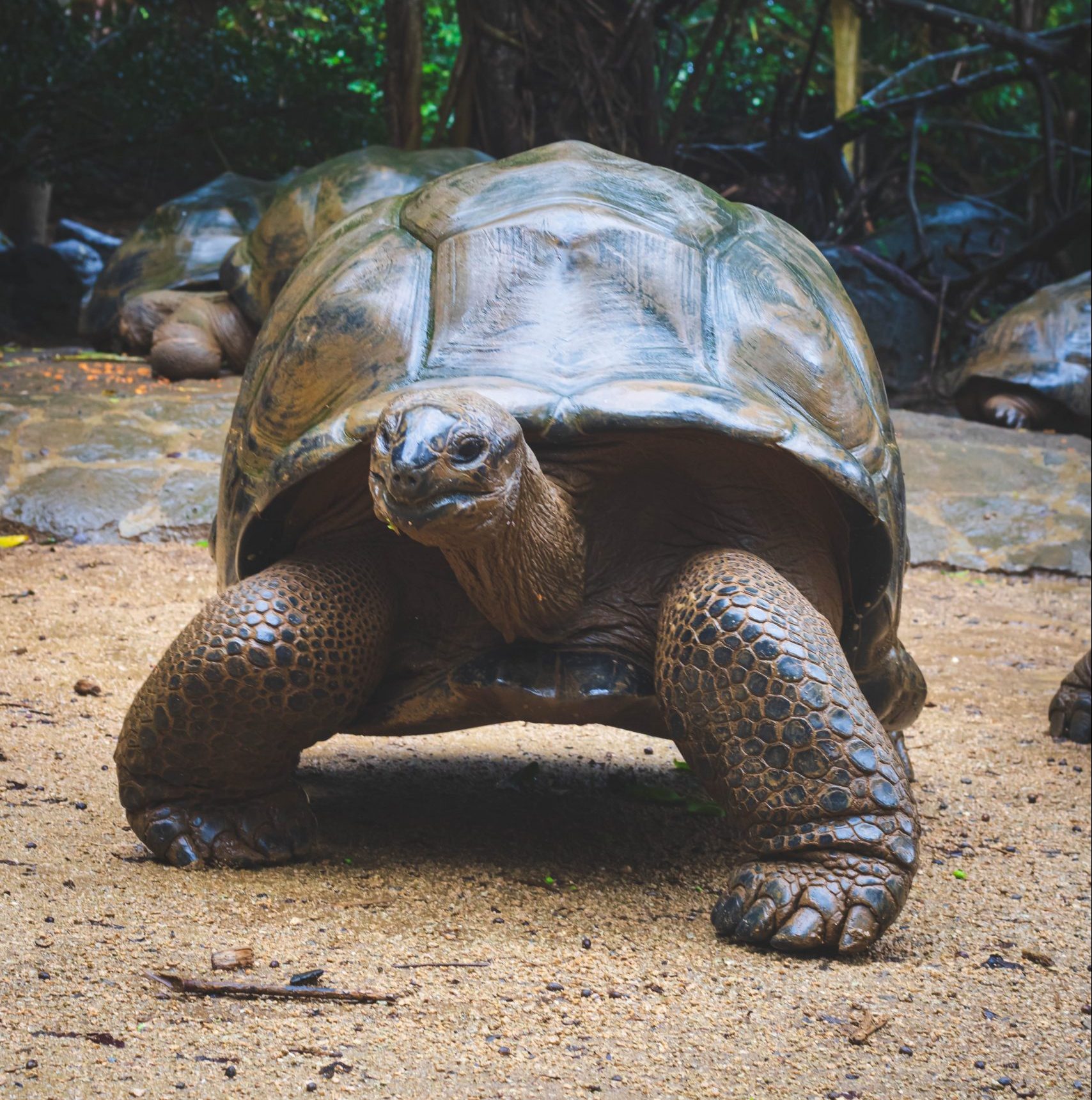Exotic
Top 5 Unusual Exotic Pets That You Can Own Legally

Exotic pets have become a fascination for animal lovers all around the world. The desire to own an animal that is unique and unusual is on the rise, with people seeking pets that can stand out in a crowd. From tiny insects to large reptiles, the world is filled with an endless variety of exotic animals. However, not all of these creatures can be owned legally. To help you out, we’ve compiled a list of the top 5 unusual exotic pets that can be legally owned, so you can add a little something special to your life.
1) Hedgehogs
Hedgehogs are among the most popular exotic pets due to their unique physical characteristics and cute appearance. They are small, spiky, and known for rolling up into a tight ball when they feel threatened. As exotic pets, they are easy to care for and have a relatively low maintenance level. Hedgehogs are nocturnal animals and can be trained to interact with their owners during the day. They can also learn tricks and be taught to recognize their owners’ voices. However, before considering a hedgehog as an exotic pet, it’s essential to check if it is legal to own one in your area. Some states and countries have regulations on owning exotic pets, including hedgehogs. Make sure you have the necessary permits and knowledge to take care of your pet hedgehog.
2) Sugar Gliders
Sugar gliders are small, nocturnal marsupials that have become increasingly popular as exotic pets. They are known for their cute appearance and affectionate personalities, which have made them a favorite among many exotic pet enthusiasts.
One of the most interesting things about sugar gliders is their ability to glide. They have a thin membrane, called a patagium, that stretches from their wrists to their ankles. When they jump, they spread their arms and legs and glide through the air like tiny superheroes. This ability to glide makes them incredibly fun to watch and interact with.
If you’re considering owning a sugar glider, it’s important to know that it requires a lot of attention and care. They are highly social animals and need a lot of interaction with their owners to stay healthy and happy. They also require a specialized diet, which includes fresh fruits and vegetables, as well as special supplements to ensure they are getting all of the nutrients they need.
Another important thing to consider before owning a sugar glider is its lifespan. These animals can live up to 15 years in captivity, which is a significant commitment for any pet owner. You’ll need to be prepared to provide for them for the long haul, which means making sure they have a safe and comfortable living environment and regular visits to the vet to ensure they stay healthy.
Overall, sugar gliders are a unique and fascinating addition to any household. They are playful, social, and incredibly cute, which makes them a joy to own. However, they do require a lot of attention and care, so make sure you’re prepared for the commitment before taking on these tiny gliders as pets.
3) Bearded Dragons
Bearded dragons are fascinating reptiles that make excellent exotic pets. They are easy to handle, low maintenance, and have a docile temperament. These unique creatures are native to Australia, and they get their name from the spiny scales around their throat, which resemble a beard.
One of the most exciting things about bearded dragons is their wide range of colors and patterns. They can range from earthy browns and greens to bright oranges and reds. Bearded dragons are also social animals that enjoy interacting with their owners and other pets. They can even learn to recognize their owners and respond to their voices and touch.
To keep a bearded dragon healthy and happy, it is essential to provide them with proper care and habitat. They require a warm, dry environment with access to sunlight or artificial UVB lighting to promote healthy growth and metabolism. Bearded dragons also need a varied diet that includes vegetables, insects, and fruits.
When considering owning a bearded dragon, it is essential to research their specific care requirements thoroughly. They can live up to 15 years in captivity and may require specialized veterinary care throughout their lives. However, with the right care and attention, bearded dragons can make fantastic and rewarding exotic pets for those who are up to the challenge.

4) Serval Cats
If you’re looking for a pet that’s more unique than a domesticated housecat, a Serval cat might be the perfect choice. These wild cats are native to Africa and have stunningly beautiful fur with distinctive spots and stripes. Serval cats are a popular exotic pet, and it’s legal to own them in many states in the US with the proper permits.
Serval cats are highly active animals and require plenty of exercise to stay healthy and happy. They need a large space to roam around in, such as a big yard or an outdoor enclosure. These cats are known for their athleticism and can jump up to nine feet in the air to catch their prey. While serval cats are friendly and playful, they can also be territorial and can exhibit aggression towards unfamiliar people or pets. Proper socialization and training are essential to ensure that your Serval cat can coexist peacefully with others.
Serval cats have a carnivorous diet, and their nutrition needs are similar to those of domesticated cats. However, they also require plenty of water and should have access to clean drinking water at all times. Since these cats are exotic pets, they need specialized veterinary care, and finding a veterinarian experienced with treating serval cats can be challenging.
5) Fennec Foxes
Another unique and fascinating exotic pet option is the fennec fox. These small foxes are native to the Sahara Desert in North Africa and are known for their large, distinctive ears. They are social creatures and are often kept in pairs.
Fennec foxes require a lot of attention and socialization, as they can become quite attached to their owners. They also have specific dietary requirements, which can include a mix of insects, fruits, and vegetables.
In terms of legal ownership, it is important to check your state and local laws, as they vary from place to place. However, many states do allow ownership of fennec foxes with the proper permits and licensing.
If you are considering adding a fennec fox to your household, be prepared for the commitment and responsibility that come with owning an exotic pet. But with proper care and attention, these unique and adorable animals can make wonderful companions.
Read Also :
Should You Get a Monkey as a Pet?
Why a Rabbit Might be the Perfect Pet for You
0 Comments
Leave a Reply
Cancel reply
Exotic
Why a Rabbit Might be the Perfect Pet for You

Rabbits are so cute and cuddly, that it’s hard not to fall in love with them. They also make the best pets, whether you have children or not, because they are so easy to take care of and have few health issues. If you’re looking to get a new pet, you might want to consider getting a rabbit!
Rabbits are low-maintenance
By nature, rabbits are docile and sweet—they’re a great addition to any family looking for an animal that requires little maintenance. They can be litter-box trained and do not need walks or training. Rabbits will often hop in and out of their home at will, so they require very little fencing. And they don’t mind being left alone while you’re at work all day; like most small pets, rabbits seem to prefer it that way!
Rabbits love affection
A rabbit’s needs are simple, and they aren’t picky. They love attention, care, and handling and will nuzzle right up to you to get it (though, unlike cats or dogs, they won’t be pushy about it). It’s very easy to build an intimate bond with a rabbit; in fact, people who live alone can benefit from rabbit companionship most of all. And even if you have other pets or small children, rabbits are generally gentle with everyone—youngsters included. Rabbits might look like prey animals, but in reality, they’re calm, confident creatures that want nothing more than to soak up as much of your attention as you can spare! Also…
Rabbits are energetic and playful
They’re known as some of the most social pets you can have. While they tend to get lonely when left alone all day, keeping one around can be like having another member of your family—and we all know how great it is to have a pet! One thing’s for sure: if you’re looking for an energetic companion, rabbits are likely right up your alley.
Rabbits love attention
Need someone to love? Rabbits are friendly, social creatures and will happily curl up on your lap to enjoy some affection. If you’re looking for an animal that’s content spending time with you, rabbits are a good bet. Even if you’re not around all day, rabbits can amuse themselves and don’t require constant supervision—so when you do have time to spend with them, they’ll make sure it counts. As Dr. Andrew Knighton of Cheshire Vets puts it: People often think [rabbits] are boring or fussy pets but that couldn’t be further from the truth; they’re very active and entertaining animals who form strong bonds with their owners.
Don’t worry, there are plenty of places where you can buy them in-store
If you’re nervous about ordering a rabbit online, don’t be. Local pet stores carry them, as do many universities that have veterinary schools, and hobby farms/petting zoos. Just visit one of these places and take your time looking over all of your options before you commit to anything. And remember: it’s only $10 to adopt! The charities we work with all strive to find homes for every animal they bring into their care. So don’t worry—even if you end up deciding against getting your pet bunny, there is always another furry friend just waiting in line behind it who will make an excellent companion. Or maybe even two!
Read Also :
What’s on the Menu? A Look at Healthy Food for Rabbits
Don’t Be a Hopeless Bunny Owner: Tips For Properly Caring For Your Rabbit
Exotic
Why Tortoises Might Be the Oldest Living Animals on Earth?

As tortoises have existed on the planet for millions of years and are known to live for long periods, it’s no wonder that many believe tortoises might be the oldest living animals on Earth. So what makes these slow-moving reptiles so durable? And how do they manage to survive as long as they do? This informative piece explores the history of tortoises and details how they can live as long as they do, possibly making them one of the oldest living animals in existence!
How old are tortoises?
Tortoises are among the oldest living animals on earth. The Galapagos tortoise is estimated to be anywhere from 180-250 years old, which is approximately 150-170 human years old. This makes them a lot older than any other animal or plant species that live in this region. However, some say that they might even be the oldest living creatures in existence. If this were true, it would mean that they have been around for more than 200 million years! And not only do they live a very long time, but they are also capable of reproducing at an advanced age.
What makes tortoise shells unique?
Tortoise shells are unique in that they are made up of three layers: an inner layer of bone, a middle layer of cartilage, and an outer layer called the periosteum. The periosteum contains blood vessels and is what gives the shell its sheen. This outer part is grown throughout a tortoise’s life, but it can’t regenerate itself so when it wears away from use, old age, or injury, it cannot heal itself.
How do you take care of a pet tortoise?
Tortoises are extremely low-maintenance pets. They enjoy being left alone and don’t need a lot of human interaction. But tortoises should always be kept indoors because they can’t regulate their body temperature like other reptiles, so they can easily overheat in hot weather. They should never be left outside during the day to avoid stress, which could lead to illness or death. At night, when it’s cooler, you may choose to let your tortoise out for some fresh air – but again, make sure he is well-shaded from the sun!
How long do tortoises live?
Tortoises are among the oldest living animals on earth. InSomeortoise species have been around for over 140 million years! This is largely due to their slow rate of metabolism and low caloric intake. Compared to other animals, they live in a much slower time frame – one day for a tortoise is like one year for humans. Interestingly enough, unlike most other living beings that grow weaker with age, tortoises become stronger as they get older! Because they have such a slow metabolism, they require less food and their organs don’t need to work so hard.
Do you know any other interesting facts about tortoises?
Tortoises are one of the oldest living animals on earth, some with ancestors that lived during the dinosaur era. The Galapagos tortoise is one of these, and it can live to be over 100 years old. One such specimen was found in an abandoned home in California and was determined to be about 170 years old! They have a slow metabolism because their shell provides them with protection from predators, so they can go for long periods without eating anything.
Read Also :
The Exotic Pet Debate: Why Banning Them Is Not the Solution
Top 5 Unusual Exotic Pets That You Can Own Legally
Exotic
Don’t Be a Hopeless Bunny Owner: Tips For Properly Caring For Your Rabbit

Rabbits are great pets to have, but they do require special care and attention. This article will help you understand how to properly care for your rabbit, from buying it to taking it on walks to preparing its food. You’ll also learn about some of the health issues that can arise and what steps you should take if one does occur. Whether you’re thinking about getting a rabbit or you already have one, this article will give you all the information you need to care for it properly!
What you should know before you get a rabbit
Rabbits are incredibly smart and gentle animals, but they’re not for everyone. Here’s everything you need to know before getting a pet rabbit. First of all, rabbits can live between seven and twelve years in captivity—so make sure you’re prepared to care for your new furry friend for at least that long. Next, remember that rabbits aren’t low-maintenance pets like cats or dogs; they require special care. If you’re ready to take on these responsibilities, then let’s get started!
The first weeks with your new bunny
If you’ve decided to get yourself a rabbit, congratulations! Rabbits are adorable and fun pets. Before getting your bunny, however, make sure you have time to take care of it properly. If you plan on leaving your new pet alone while at work or school, don’t think about getting one until that situation changes. Since rabbits are social animals who enjoy company and attention, they can quickly become depressed if left alone for long periods.
Where will he live?
A rabbit can live in a cage, but it’s better to give him room to roam around your home. Larger rabbits should have an entire room dedicated to them. This is vital for their physical and mental well-being. An easy way to create a safe space for your rabbit is with baby gates or even just sectioning off an area with furniture that has drawers in it.
What about litter training?
Rabbits are naturally clean animals and have an instinctive desire to keep their environment sanitary. This is why you’ll often see them going after some of their feces once they’re done with it. While rabbits can be litter trained, they need supervision while they’re doing it so they don’t ingest any of their droppings along with any toxins or other dangerous particles that may be in their litterbox.
How often do I feed him?
A rabbit’s diet is dependent on its activity level, but in most cases feeding it once or twice a day is appropriate. If your rabbit tends to be more sedentary, you may want to reduce its rations during times of low activity and increase them when they are more active. Remember that rabbits can go without food for up to 24 hours without suffering any ill effects, so don’t get too worried if they skip one meal.
What about hay and pellets?
Your pet rabbit is a herbivore, so he should be eating plenty of hay (grass or alfalfa) and pellets. Hay serves two purposes for your bunny: It’s high in fiber and nutrition, and it helps him pass his waste normally. Pellets, which contain nutrients that help keep your bunny healthy, should also be served daily.
Is he ready to be outside on his own?
Rabbits can be trained to go outside after they reach eight weeks of age. Before then, you will need to either bring your rabbit out every few hours or keep him in his cage inside with easy access for potty breaks. Remember that rabbits are prey animals by nature, so leaving them alone and without supervision is not safe or appropriate. Rabbits are social creatures and love spending time with their human companions, but don’t feel pressured into doing anything that makes you uncomfortable.
Do rabbits make good pets?
Rabbits make great pets for many people. However, if you’re planning on getting one, there are certain facts about them that you should know before you bring one home.
See the previous article ↑↑↑
What if my rabbit gets sick?
The best way to ensure your rabbit stays happy and healthy is to seek veterinary attention early. Bunnies that don’t feel good often hide their illness, meaning you might not notice when something’s wrong until it’s too late. Regular visits with a vet can help identify health issues as they arise, so you can start treatment right away. Once you know what signs to look for, it becomes much easier to keep an eye on your furry friend.
Read Also :
Why a Rabbit Might be the Perfect Pet for You
What’s on the Menu? A Look at Healthy Food for Rabbits
Trending

 Cats12 months ago
Cats12 months agoDon’t Feed Your Cat These 8 Foods!

 Cats8 months ago
Cats8 months agoWhy Do Cats Spray and How Can You Stop Them? Insights into Urine Spraying in Male Cats

 Dogs2 years ago
Dogs2 years agoSo You’re Thinking About Getting a Poodle

 Birds1 year ago
Birds1 year agoThe Perfect Blend for Your Birds: Birds and Blend

 Horses1 year ago
Horses1 year agoDon’t Go Horse Shopping Without Checking This Dressage Horse Shopping Checklist First!

 Cats7 months ago
Cats7 months agoPre-Vaccination Prep: Getting Your Cat Ready

 Cats7 months ago
Cats7 months agoThe Ins and Outs of Cat Sterilization: Removing the Female’s Ovaries

 Dogs7 months ago
Dogs7 months agoWhat to Do With Your Dog’s Body After Death: A Guide for Pet Owners


















Pingback: The Exotic Pet Debate: Why Banning Them Is Not the Solution